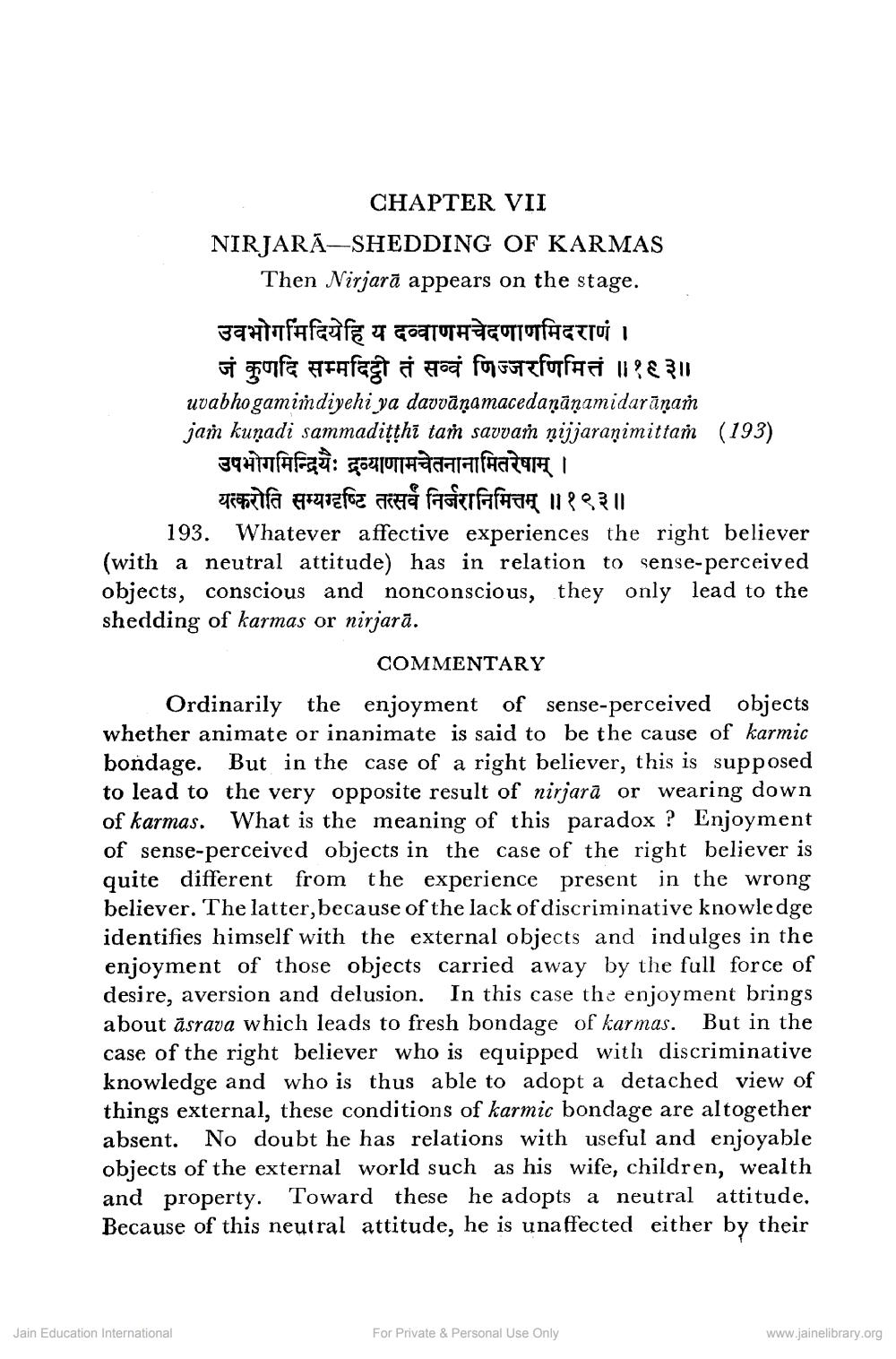________________
CHAPTER VII NIRJARĀ-SHEDDING OF KARMAS
Then Nirjarā appears on the stage. उवभोगमिदियहि य दवाणमचेदणाणमिदराणं ।
जं कुणदि सम्मदिट्ठी तं सव्वं णिज्जरणिमित्तं ॥१६३॥ uvabhogamiņdiyehi ya davvāṇamacedaņāņamidarāņam jam kunadi sammadițțhi tam savvam nijjaraņimittam (193)
उपभोगमिन्द्रियैः द्रव्याणामचेतनानामितरेषाम् ।
यत्करोति सम्यग्दृष्टि तत्सर्व निर्जरानिमित्तम् ॥१९३।। 193. Whatever affective experiences the right believer (with a neutral attitude) has in relation to sense-perceived objects, conscious and nonconscious, they only lead to the shedding of karmas or nirjarā.
COMMENTARY Ordinarily the enjoyment of sense-perceived objects whether animate or inanimate is said to be the cause of karmic bondage. But in the case of a right believer, this is supposed to lead to the very opposite result of nirjarā or wearing down of karmas. What is the meaning of this paradox ? Enjoyment of sense-perceived objects in the case of the right believer is quite different from the experience present in the wrong believer. The latter, because of the lack of discriminative knowledge identifies himself with the external objects and indulges in the enjoyment of those objects carried away by the full force of desire, aversion and delusion. In this case the enjoyment brings about asrava which leads to fresh bondage of karmas. But in the case of the right believer who is equipped with discriminative knowledge and who is thus able to adopt a detached view of things external, these conditions of karmic bondage are altogether absent. No doubt he has relations with useful and enjoyable objects of the external world such as his wife, children, wealth and property. Toward these he adopts a neutral attitude. Because of this neutral attitude, he is unaffected either by their
Jain Education International
For Private & Personal Use Only
www.jainelibrary.org




